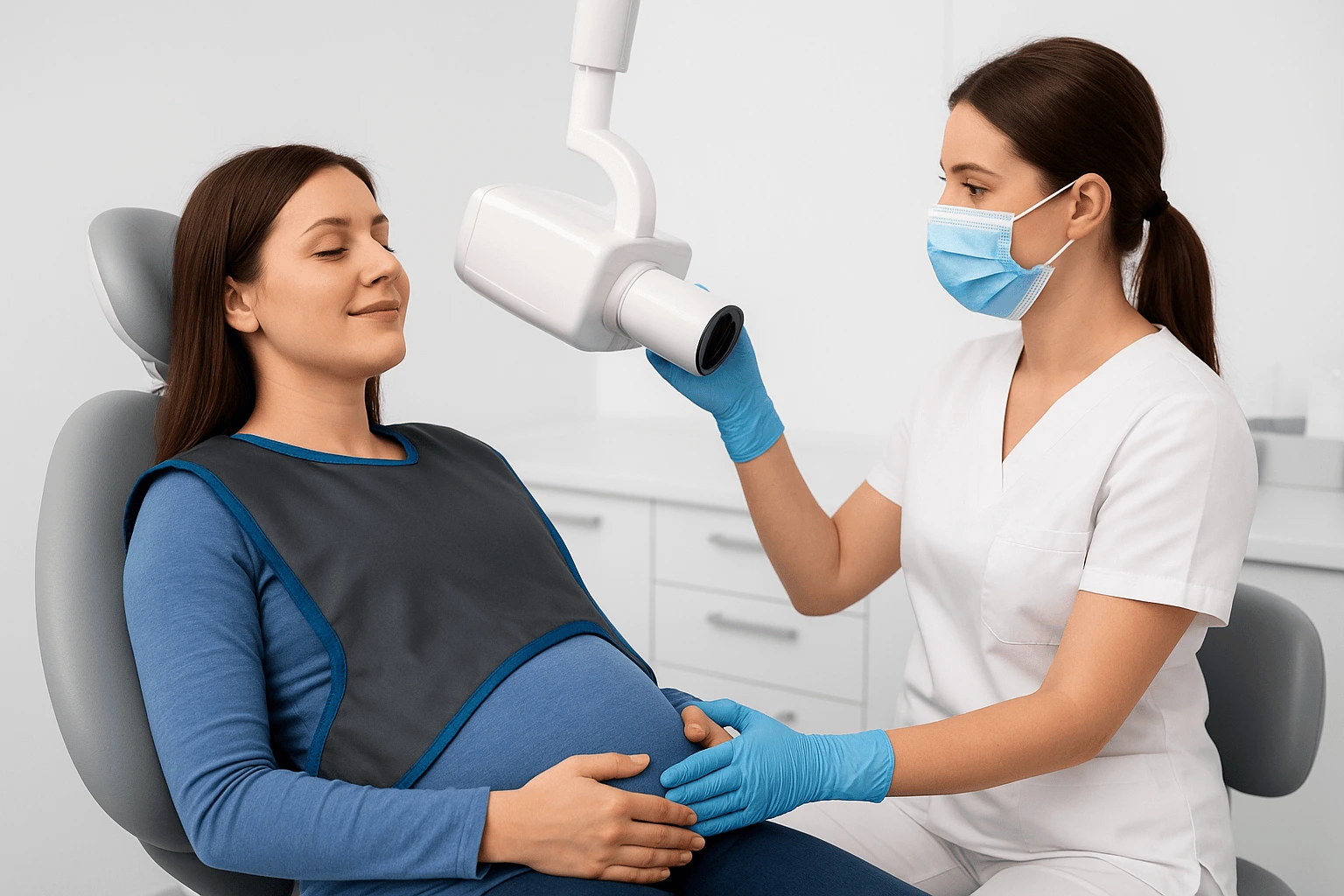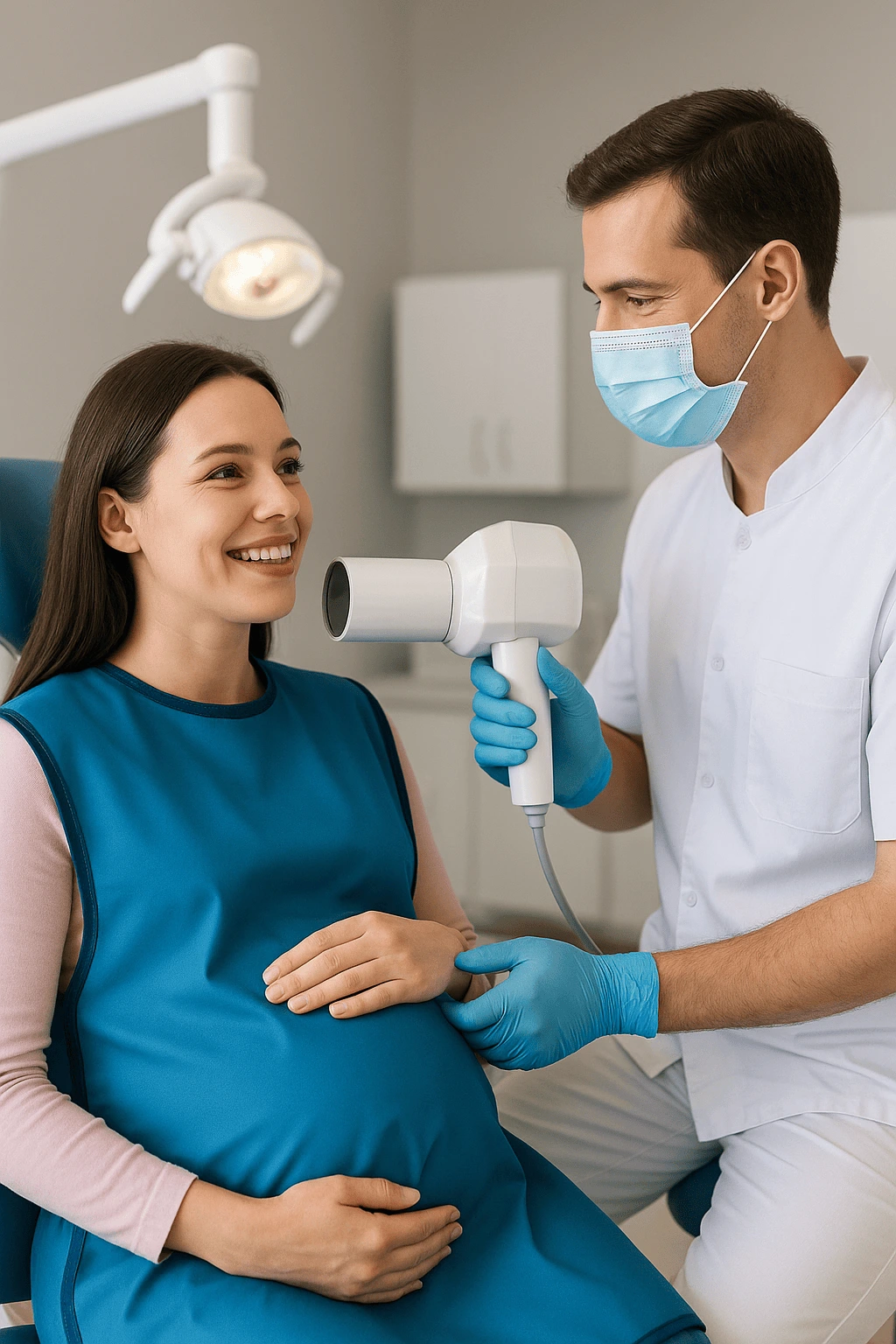


Pregnancy is an exciting journey, but it often comes with questions about safety—especially regarding medical procedures like dental X-rays. Expectant mothers often worry about radiation exposure and potential effects on their unborn child.
The reassuring truth is that with proper precautions, dental X-rays are generally safe during pregnancy. Understanding when X-rays are necessary, how dentists minimize risk, and what alternative approaches exist can help you make informed decisions for both your health and your baby’s well-being.
This guide provides everything you need to know about dental X-rays during pregnancy, including safety measures, types of X-rays, precautions, and tips for maintaining optimal oral health throughout this special time.
Pregnancy causes hormonal changes that can make gums more sensitive and increase the risk of inflammation, gum disease, and cavities. Untreated dental issues can lead to infections that affect oral and overall health, as well as pregnancy outcomes.
Routine dental care, including check-ups and cleanings, is critical. Dentists may recommend X-rays to identify hidden problems such as:
X-rays provide a clear picture beneath the surface, helping dentists make accurate diagnoses and prevent complications while keeping treatments safe.
The short answer: Yes, with proper precautions.
Modern dental X-rays use very low doses of radiation. Protective measures, including lead aprons and thyroid collars, further reduce any risk to your baby. While non-urgent X-rays are often postponed until after the first trimester, medically necessary X-rays can be safely performed at any stage of pregnancy.
By following these precautions, dental X-rays can be safely integrated into prenatal oral care.
.webp)
Dentists use several types of X-rays, each serving different diagnostic purposes:
When taken with protective shields and proper technique, these X-rays are considered safe for pregnant patients when clinically necessary.
To ensure safety during dental X-rays, follow these tips:
By taking these simple precautions, you can receive dental care without compromising your baby’s safety.
Sometimes, waiting isn’t an option. Dental X-rays may be required if you experience:
In these cases, the benefits of taking an X-ray far outweigh the minimal risk of radiation exposure. Prompt imaging can prevent complications and ensure timely treatment.
Dentists may use strategies to further reduce exposure during pregnancy:
Your dental professional will always weigh risk versus benefit and tailor the plan to your trimester and oral health status.
Even if X-rays are postponed, you can protect your teeth and gums with these practices:
Strong oral hygiene habits can reduce the likelihood of urgent dental issues, limiting the need for emergency X-rays.
Q: Can dental X-rays harm my baby?
A: When taken with proper shielding, radiation exposure is extremely low and considered safe.
Q: Should I tell my dentist I’m pregnant?
A: Absolutely. Your dentist can adjust procedures and take extra precautions.
Q: Are digital X-rays safer than traditional X-rays?
A: Yes, they use much less radiation while providing clear images.
Q: Can I undergo other dental treatments while pregnant?
A: Yes, many procedures, including fillings and cleanings, are safe.
Q: When should I postpone dental X-rays?
A: If the X-ray is elective, most dentists recommend waiting until after delivery or after the first trimester. Emergencies take priority.

Dental X-rays can be an important part of maintaining oral health during pregnancy. By communicating openly with your dentist, following recommended safety measures, and addressing dental concerns promptly, you can protect both your smile and your baby’s well-being.
If you’re pregnant and need dental care or a check-up, don’t wait. Contact a trusted dentist immediately to ensure safe and effective treatment tailored to your pregnancy.
Smiles By Design San Diego
Consistently rated 5 out of 5 stars in San Diego, providing safe, professional dental care for patients at every stage of life—including expectant mothers.
Address: 15373 Innovation Drive #110, San Diego, CA 92128
Phone: 858-485-5552
Book your appointment today for compassionate, expert dental care in a safe and comfortable environment.